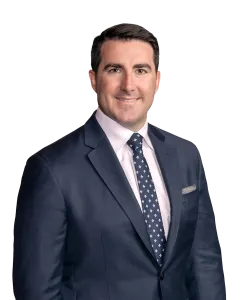DME Provider to Plead Guilty to $109 Million Medicare Fraud Scheme
Headlines that Matter for Companies and Executives in Regulated Industries
DME Provider to Plead Guilty to $109 Million Medicare Fraud Scheme
A Florida-based individual was charged with one count of health care fraud and one count of payment of kickbacks in connection with a federal health care program for his role in the submission of more than $109 million in false claims for durable medical equipment (“DME”), including arm, back, knee, and shoulder braces. The defendant has agreed to plead guilty, but a plea hearing has not yet been scheduled.
According to the charging documents, the defendant’s alleged Medicare fraud scheme entailed instructing his employees to establish shell companies in more than a dozen different states; listing his mother, wife, and yacht captain as corporate directors; and using false names when registering the shell companies as DME providers. The defendant allegedly purchased Medicare patient data from call centers that targeted elderly patients, and instructed the call centers to contact the Medicare beneficiaries and offer ankle, arm, back, knee, and/or shoulder braces “at little to no cost.” The defendant submitted claims for the DME equipment to Medicare without first obtaining a prescription to ensure medical necessity. The charging documents also allege that the defendant submitted claims that were duplicates of earlier-submitted claims, for patients that were deceased, and for $7.5 million in DME that he did not actually provide to Medicare beneficiaries. The defendant was also accused of billing insurance policies more than twelve times the average price of the braces that were provided to the patients. Over the course of the fraud scheme, the defendant allegedly submitted $109 million in Medicare claims and collected more than $12 million. The defendant could be sentenced for up to 10 years in prison, three years of supervised release, and a fine of $250,000 for each charge.
Six Former NFL Players Charged in Alleged Fraud on Health Care Benefit Program for Retired Players
Six former National Football League players were charged in a superseding indictment in the Eastern District of Kentucky for alleged fraud on a health care benefit program for retired NFL players.
Darrell Reid, Antwan Odom, Anthony Montgomery, Clinton Portis, Tamarick Vanover, and Robert McCune were each charged with one count of conspiracy to commit health care fraud and wire fraud. Reid, Odom, Montgomery, and Portis were also charged with one count of wire fraud and one count of health care fraud, and Vanover was charged with two counts wire fraud and health care fraud. McCune was charged with ten counts of wire fraud, twelve counts of health care fraud, and three counts of aggravated identity theft.
The alleged fraud concerned the Gene Upshaw NFL Player Health Reimbursement Account Plan. The Plan provided former players, their wives, and their dependents with tax-free reimbursement of out-of-pocket medical expenses that were not covered by insurance, up to $350,000 per player. Twelve players had previously been charged in December 2019 for their roles in the fraud scheme, including McCune, Portis, and Vanover. More than $3.9 million in false and fraudulent claims have allegedly been submitted to the Plan, $3.4 million of which was paid between June 2017 and December 2018. Seven of the original defendants have already pleaded guilty, with one defendant sentenced to 12 months and one day in prison.
The superseding indictment added Reid, Odom, and Montgomery as defendants, and included new charges against McCune for aggravated identity theft, for allegedly using other persons’ identities as part of the fraud; and for health care fraud, for allegedly submitting false claims (or causing their submission) to the Plan on his own behalf. The superseding indictment alleges that the defendants engaged in a scheme to submit false claims to the Plan for medical equipment that they never purchased or received, and fabricated invoices, prescriptions, letters of medical necessity, and other supporting documents in order to conceal the fraud. The equipment billed for included hyperbaric oxygen chambers, cryotherapy machines, ultrasound machines for doctors’ offices, and electromagnetic therapy devices designed for use on horses, and typically cost between $40,000 and $50,000 per claim. The superseding indictment further alleges that some of the defendants, including McCune and Vanover, recruited others to participate in the scheme by offering to submit claims in exchange for kickbacks.
Pacira Pharmaceuticals to Pay $3.5 Million for Alleged False Claims Act Violations
Pacira Pharmaceuticals Inc. reached an agreement with the government to pay $3.5 million to resolve allegations that it paid sham research grants to healthcare providers as kickbacks to induce drug prescriptions to Medicare and Medicaid beneficiaries.
The government alleged that, from December 1, 2012, through April 30, 2015, Pacira paid research grants to physicians and healthcare institutions to increase sales of its new pain-management drug, EXPAREL. Pacira sales representatives or marketing executives initiated the research grants, discussed their sales goals in connection with the grants, and required that EXPAREL be placed on the formulary at the physician’s institution before any research grant would be awarded. However, once it had awarded the grant money, Pacira did not monitor the research, set parameters for research milestones, or document why the research was necessary or valuable. In some instances, the grant recipient performed no work at all. Pacira executives also allegedly coached recipients on how to avoid internal scrutiny of the grant payments.
The allegations originated from a qui tam lawsuit brought by a whistleblower, who will receive approximately $520,000 of the recovery from the federal share of the settlement and approximately $118,000 from the state share of the settlement. The claims resolved by this settlement agreement are allegations only, with no admissions of liability.
New Jersey Securities Trader Admits to $17 Million Market Manipulation Scheme
A New Jersey-based securities trader pleaded guilty to charges for securities fraud and conspiracy to defraud the United States for his role in a wide-ranging market manipulation scheme through which he received more than $17 million in illegal profits.
From 2014 to 2016, the defendant allegedly conspired to manipulate public companies’ securities prices by coordinating trading in dozens of straw brokerage accounts that were held in the names of others, but that the defendant secretly controlled and funded. The defendant made repeated, contemporaneous transactions, using Run Based Manipulation and Order Based Manipulation, to artificially manipulate the companies’ market prices and induce others to trade in those securities at the manipulated price, based on the false impression of market interest in the securities.
Under Run Based Manipulation, a trader takes either a long or a short position in a security, enters orders or trades in a manner designed to inflate or deflate the price of the security, and attracts others to trade the security based on that market activity. Once investors misled by the Run Based Manipulation activity purchase the securities at inflated prices, or sell them at deflated prices, the trader then reverses his or her position at the inflated or deflated price in order to increase profits. Order Based Manipulation uses orders to similarly give false signals about a security’s demand or supply to other market participants.
As part of his guilty plea, the defendant admitted to concealing the identities of those who actually controlled the straw accounts and realized the profits, which caused the government to tax the straw accounts at a lower rate and enabled the defendant to avoid $394,424 in taxes.
The plea agreement contemplates that the defendant will receive a sentence of 18 months in prison, forfeit $17.1 million in profits, and pay $394,424 in restitution to the IRS, but this must be accepted by the court. Absent agreement, the securities fraud charge carries a maximum potential penalty of 20 years in prison and a $5 million fine, and the conspiracy to defraud the United States charge carries a maximum potential penalty of five years in prison and a $250,000 fine, or twice the gross gain or loss from the offense.
The government also reached a settlement of its civil forfeiture case against assets acquired by the defendant and his family using proceeds of the market manipulation scheme, under which the defendant and his family agreed to forfeit all assets subject to the pending forfeiture complaint, and cooperate with the government in transferring, managing, and disposing of the assets.
Contacts
- Related Industries
- Related Practices






